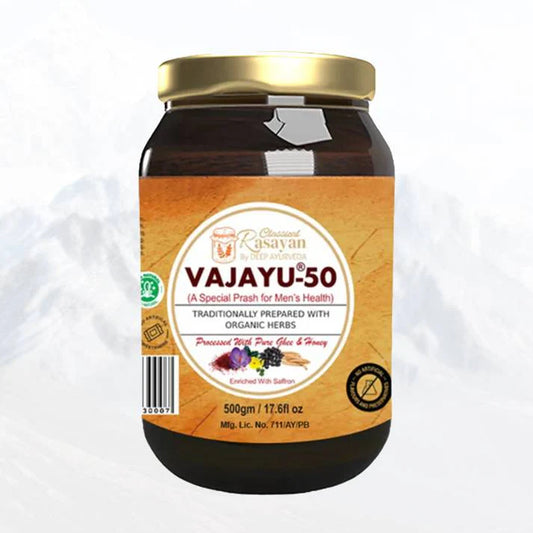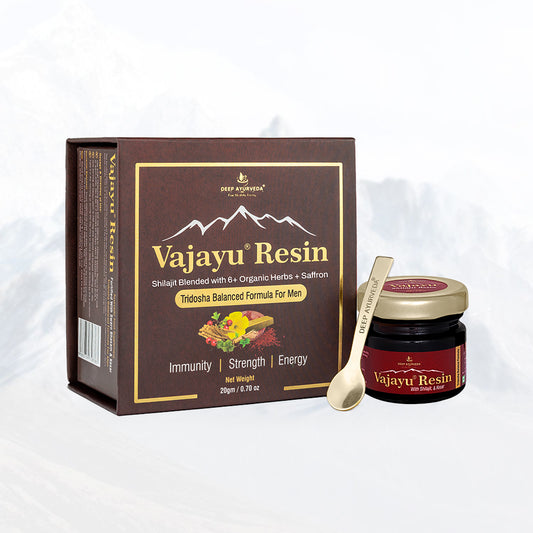Endometriosis can present in every manner—from severe menstrual cramps to painful intercourse and even, at times, infertility, which really affects the life of a woman in a major way. It arises due to the growth of similar tissue to that lining the uterus outside the uterus, with the possibility of affecting adjacent organs, including the bladder and intestines. According to the World Health Organization, estimates show that about 10% of women and girls of reproductive age have endometriosis.
Diagnosis often takes years, usually about a decade, in which women endure persistent symptoms and frequent consultations with numerous doctors or hospital visits. Endometriosis is not a completely curable disease, but its symptoms can be managed with surgical and hormonal treatments.
Ayurveda treats disease in a "wholesome" sense. It does not aim to quickly get rid of the signs but tries to find and treat the root causes so that eventually the person can feel much better. In this blog, we will read about how Ayurvedic treatment can help patients with endometriosis and how one can include Ayurvedic practices into their day-to-day lives.
What are the Causes of Endometriosis from an Ayurvedic perspective?
Ayurveda, the traditional medicinal science, gives quite a different description of endometriosis. The disease is associated with some bodily imbalances and blockages, explained below in very simple terms:
- Build-up of Waste: According to Ayurveda, endometriosis is a disease that results from too much waste product accumulating in the body. This waste is responsible for obstructing the nourishment of body tissues and destroying the immune system.
- Imbalance of the Energies: There are three energies in the body: vata, pitta, and kapha. The harmony between these energies is disturbed due to endometriosis.
- Types of disorders: The disease that arises from this disorder is based on the symptoms presented—kapha (from overgrowing of cells) or pitta (from inflammation and the effect it has on blood and hormones).
- Importance of Vata: Vata dosha, with the energy of air and movement, is given the most important role in endometriosis. It is considered the causative factor for misplaced endometrial cells and hence, pain.
- Combined Disorder: All three doshas are affected by endometriosis, primarily the vata dosha at first, which then disturbs the other doshas. This condition is known as "sannipatika."
To put it simply, Ayurveda considers endometriosis as the result of a body waste mix-up in its energy levels.
Endometriosis Relief with Ayurvedic Treatments

Ayurveda's treatment for endometriosis aims to provide relief by addressing the root causes. It suggests that the condition stems from the build-up of toxins, inadequate nutrition, poor digestion, and imbalances in the nervous system. The goal of Ayurvedic treatment is to correct these imbalances and alleviate the symptoms of endometriosis.
The treatment focuses on enhancing the body's natural healing ability. A key aspect is Ayurvedic cleansing therapy, which aims to balance the body’s energies by removing accumulated waste, particularly focusing on the liver due to its critical role in hormone production and menstruation. This process involves methods like Ayurvedic oil massages and body wraps to draw out toxins, which are then eliminated through the digestive system. Additionally, Ayurvedic treatment & herbal remedies, and acupuncture are used to address the symptoms of endometriosis. Strengthening the digestive system and making dietary changes are also important parts of the treatment.
10 Ayurvedic Tips for Reducing Endometriosis Symptoms
1. Change your diet - Changing your diet is one such way that, when done correctly, can help control your endometriosis to some extent. Most important is that you should not take in any gluten so you may be able to keep away from the pain that may come along with it. Acidic foods should not be consumed; if they are, consume less of them. No soy, sugar, meat, coffee, dairy, vinegar, or fruit juices. Incorporating high-quality fats and omega-3 and 6 fatty acids can beneficially impact your condition.
2. Herb Use in Ayurvedic - The use of herbs has been known to play a very important role in Ayurveda. It is yarrow, lady's mantle, and wild yam, which are normally used during the treatment process against endometriosis. These are some of the herbs that are popular for their support of the female reproductive system.
3. Lifestyle Changes: Generally, it has been found that an excess of Vata is the root cause of endometriosis and needs to be reduced. The daily routines of normal living are going to impart stability and by following them, Vata dosha can possibly be reduced.
4. Vata Oil Massage: Give a gentle self-massage of Vata oil to yourself sometimes. Treat yourself to a little ritual. The oils will help to soothe your nervous system and decrease the vata in your body.
5. Practice Yoga Reeguraly: Some yoga poses act as an endometriosis natural treatment to stimulate your abdominal organs and help your energy flow return. When practicing yoga, taking deep, slow breaths helps calm your nervous system and promotes mental clarity.
6. Understanding Your Menstrual Cycle: This is an area that is becoming more and more well-known. Ayurveda advises making slight changes in diet and lifestyle a week before actual periods are due. Eating easily digested food and engaging in yin yoga-style exercises that help the body become somewhat grounded is the recommended course of action. Avoid feeding on dry, cold, sour, and fermented foodstuffs. Red meat, lemon water, chilies, caffeine, and refined sugars are some of the things to stay away from during the week before menstruation. For example, applications like Clue and Natural Cycles help a lot when trying to predict timings for the time of menstruation.
7. Reduce your stress levels: Excess stress is harmful to the body, and it can bring diseases to a much worse level. Make sure to minimize the stress factors, which will lower the Vata in your body and let you improve against endometriosis. Such activities as meditation and breathing exercises help you lower your stress level.
8. Perform Detoxification Therapy: At least, you could put into practice an Ayurvedic treatment like Detoxification Therapy once a year, preferably in the spring. Drink a glass of warm water, two glasses spiced up with a teaspoon of freshly squeezed lemon juice on an empty stomach every morning for two weeks. If you like, you can also add honey. The herbs Amalaki and Ashoka support your detoxification.
9. Supplements and Nutrition - Have easily digestible food, more so in times of pain or during inflammation, because stress does affect your digestion. In times of pain, generally, one would not feel like eating. One may try to eat warm, simple, and nourishing food like dal, rice, cooked vegetables with spices, and stewed fruits. Fresh, home-cooked meals are the best for healing.
Try to include a considerable amount of fat in the diet, such as olive oil and ghee. They do help to smoothen the dry and rough region over the body, which is quite necessary if there is an excess of Vata. This causes further inflammation and brings in heat that worsens the problems of endometriosis.
Drinking herbal teas with the addition of spices like cumin, coriander, fennel, and fenugreek is really useful to your digestion—they reduce pain and swelling. Cumin and fenugreek are wonderful for reducing the pain in your uterus
10. Natural Pain Management - The warm oil massage, commonly known as "abhyanga," helps calm the body and makes you feel safe and relaxed. This is one of the best endometriosis natural treatment that can start the body's healing process.
To deal with stress, use effective coping strategies. Stress is always there, but managing it properly is key. A good method is nadi shodhana or alternate nostril breathing, which is easy to do and helps clear your mind.
Having a routine is also beneficial. Our bodies prefer consistency, like spending time outside, eating at the same times every day, and having a pre-bed routine that avoids screens, which helps maintain balance.
Small dietary and lifestyle modifications, including those mentioned in this piece, if added up over time, can bring considerable relief both in the intensity of pain within periods and other symptoms of endometriosis.
Before doing the diet, exercise, or any programs related to your health, always first seek the advice of your professional Ayurvedic practitioner and/or doctor, such as Dr. Baldeep Kour at Deep Ayurveda.
To find out more about Endometriosis Ayurvedic Management Consultation or to book an appointment, visit the Deep Ayurveda website here.







